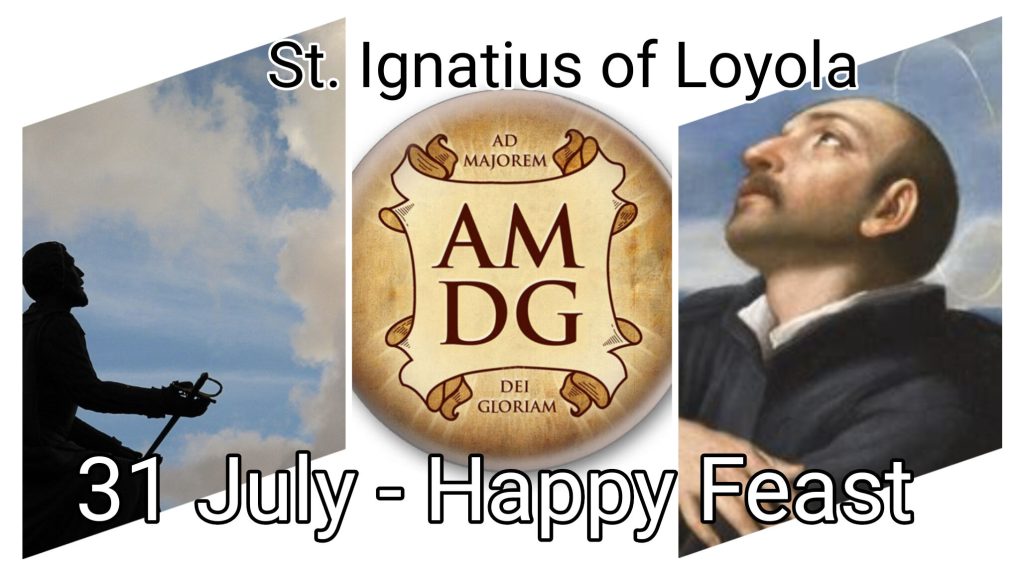P. A. Chacko, S.J.

Spanish born Íñigo López de Oñaz y Loyola, now venerated as Saint Ignatius of Loyola, is the founder of the Society of Jesus.
The child of Basque nobility, Inigo grew up in the lap of luxury. As a young man he reveled in his family fame and glory. He went on to nourish ambitions of becoming a hero, a fighter hero, and win laurels of worldly glory.
He did become a soldier and gathered courage to fight against a French-Navarrese expedition force at Pamplona. Even as the Spanish army was retreating in defeat, the impetuous Inigo lost his good sense and took on the French. A French cannonball felled him. Wounded and humbled, he became a limping man for his life.
Was it a fireball sent by God to melt his pride and purify him? It decidedly was. He came out of his treatment a shorter man, with two inches of his knee bones chipped off and his ambition evaporated. There Inigo saw the finger of God. The finger that pointed to the way he should limp along to be a man of God!
The realization led him to surrender his sword, the symbol of his pride and ambition. Thereafter, we see him a beggar, a pilgrim for Christ. He withdrew into a cave at Manresa. The cave experience chiseled off the contours of his selfishness, the gloss of his ambition for glory, and disrobed him of his mantle of hunger for name and fame!
The mendicant was treated by God like a school child to learn the a b c d of discernment. From then on, there was no going back from this spirit-led life of abandonment.
The mendicant gradually became a visionary. He claimed to have visions of the Divine and the revelations of divine messages. That led him to coin his vantage dictum: ALL FOR THE GREATER GLORY OF GOD!
The mendicant journey propelled him to a spiritual journey to learn the ramifications of the divine demand for him. A sprinkling of studies in humanities was contemplated upon to sharpen his intellect. Then philosophical and theological studies required for priesthood.
His university friends prompted him think of forming a company. They formed a group. The Company of Jesus. This tiny plant grew into a huge worldwide tree. Today it is known as the Society of Jesus.
Jesuits today number about 15,000 worldwide. From the time of Ignatius, the number had swelled continuously. However, the growth had its of ups and downs. The challenges of the world and the demands and attractions of the worldly values did not show a favourable climb in numbers, but a good shrink.
The members of the Society of Jesus are to heed the call of Christ the King to spread His kingdom of peace, justice and progress. Given the wide spectrum of worldly values and demands, the Jesuits need to use the sword of discernment, a fitting tool which their founder has placed in their hands.
The Jesuits need to keep in mind and draw inspiration from the words of Pope Paul VI to the General Congregation 32 (1974): “Wherever in the Church, even in the most difficult and extreme fields, in the crossroads of ideologies, in the frontline of social conflict, in confrontation between the deepest desires of man and the perennial message of the Gospel, there have been, and there are Jesuits.”